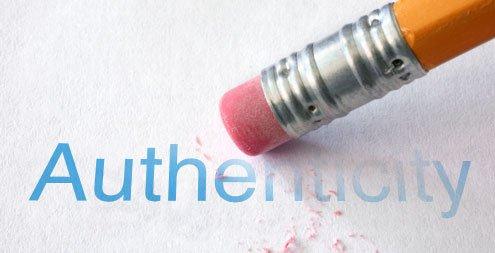With the Thanksgiving holiday fast approaching, I’m seeing a lot of “feel good” posts around the internet. The one I found most interesting was (no surprise, if you know me) based on the psychology and neuroscience of thankfulness and gratitude.
The gist: ditch your attachment to emotionally authenticity.
In a nutshell, neuroscience tells us to fake it ‘till you make it. Studies show that acting happy (e.g., smiling) even when we don’t feel happy stimulates brain activity associated with positive emotions. Exercise that brain activity on a regular basis and it becomes strong. This is similar to the process of “reframing” – the effortful but effective means to actually change the neural connections in the brain, and thereby change how you feel about something (really). Focusing on your mental effort on things that are good, or on actions consistent with a happiness, can actually lead to you experience the joy of an abundant life.
Another way to focus on the positive is to keep a gratitude journal. Even though it is not always easy to identify things for which we are grateful on a daily basis, people who keep short daily or weekly lists of things they are grateful for actually experience higher levels of happiness and life satisfaction than those who don’t. Studies have demonstrated this again and again.
Catch yourself grumbling about work, traffic, and other mundane irritations? Make the effort to cease and desist. Make the further effort to replace small complaints and scowls with happier thoughts and more pleasant facial expressions.
Choose to be positive, even if you don’t feel that way, and eventually (not by magic, but by the power of neuroplasticity) you will.
In this NY Times piece, the author recommends a few other specific strategies:
- Practice interior gratitude (giving thanks privately). The author’s example is to adopt a mantra of gratitude that people come to listen to his speeches, even if the audience is unfriendly. In my own life, I try to do this when I receive criticism about a presentation or publication. Obviously, I can focus on the compliments instead, but I also try to view anything unconstructive or mean-spirited as helpful advice from which I can improve. I make a deliberate and consciousness effort to genuinely ask myself “What can I learn from this?” instead of the easier default – to be offended, hurt, or angry. And, perhaps more importantly, I make the effort to answer that question with even the smallest step in a positive direction.
- Practice exterior gratitude (public expressions of thanks). Create a daily routine of sending just one or two emails, letters, or – gasp! – phone calls to thank colleagues or loved ones for something, no matter how small. I admit, this is an area in which I could use some work. Even though I often appreciate the efforts of others, I could do more to make a habit of expressing it.
- Be grateful for insignificant things. Don’t wait for huge milestones, awesome achievements, or fantastic luck. Do the old “stop and smell the roses” routine – notice the world around you, and be thankful. Over the course of a lifetime, the little things very often are the big things, disguised.
So, go forth and free yourself from the chains of “emotional authenticity” and instead focus on creating gratitude against your strongest negative impulses. Find the silver lining, and embrace it. Validate it. Amplify it. In doing so, you’ll soon find that your authentic self does indeed have much to be grateful for.









